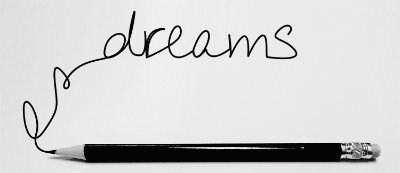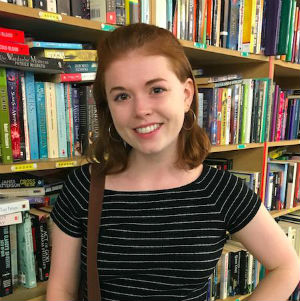Writing Advice:
Reedsy short story competition judge, Savannah Cordova, shares her experiences of writing for and then judging a popular contest
Quick links on this page:
Reedsy run a popular short story competition, which I list on my website. They give weekly prompts to inspire entrants and currently attract over 150 submissions each week.
When Desiree, from the Reedsy team, contacted me to ask about the possibility of writing a guest post for the site, we discussed the types of post I like to publish – primarily short story publishing case studies. So, Desiree asked around the Reedsy writing team to see if anyone had the relevant experience.
Many of the team members had been placed in competitions or published, but Savannah Cordova had won the Reedsy short story contest and then gone on to become a company employee. Part of her job is to judge the competition.
This gives Savannah a unique set of experiences to share. She can talk about her journey as a writer and how she won the competition. Then she can talk about the flipside; of how judging a short story contest has helped her better understand the process, and what advice she would give to writers entering competitions.
Epic, interesting, useful — BOOM. Here she blows, ladies and gents. I hope you enjoy Savannah's post. It's a no-holds-barred account of her writing journey that includes some fantastic real-life insights and advice.
As a writer, 'the dream' is always to turn your passion into some kind of quantifiable success. This dream came true for me in two ways last year.
Firstly, I won a writing contest, for which I received a prize of $50, publication on the host's Medium page, and a massive ego boost regarding my writing prowess (whether deserved or not, you can decide for yourself after reading this). And secondly, winning this contest led me to apply for an internship with the company holding it. I got the internship and now work full-time for Reedsy, where part of my job is to judge the short story contest that I once yearned so much to win.

Now, a quick disclaimer: this post isn't going to tell you how to turn a contest win into a job. Though it may have helped my application stand out, I can say with fair confidence that I wasn't hired by Reedsy just because I'd won their contest. However, taking part in their short story competition has given me a unique perspective as a judge, as I understand both sides of the coin.
Indeed, back when I was entering contests on the regular, I didn't do any research regarding what to do (or what not to do) in order to win. I relied on my instincts, figuring that other people's writing advice would always either be generically unhelpful or irrelevant to me. (For instance, I've never been able to follow the oft-given counsel to 'write every day no matter what', and can feel my eyes start to roll every time I read it.) Ultimately, my instincts led me to victory — or at least didn't prevent it — and I thought that meant I was undoubtedly in the right.
But now that I'm a contest judge reading 30-50 stories a week, there's nothing I'd love more than for our entrants to know a few essential things about what works and what doesn't. And I can't help but think that if I could go back in time two years, I would tell myself to spend less time angsting over what contest judges wanted to read, and more time actually writing well-developed, contest-worthy stories.
I'm getting ahead of myself, though. To really impress upon you the full-circle experience and comprehensive value of entering a contest, winning it, and then becoming a judge for that same weekly contest, I should probably start at the beginning.
I began entering writing contests the year after I graduated college with an English degree, having finally realized that I needed a hard deadline to get any writing done. These deadlines were my initial motivation, but after submitting each story, I became fixated on when I would hear back and where I would place in the contest, obsessively checking my email every hour.

After growing frustrated with a multi-round competition that kept me on the hook for months, I decided I would only enter contests with close deadlines that promised to announce their winners quickly, which is how I discovered Reedsy's short story contest. I was immediately a fan of the format: a new contest every week, with five different prompts to choose from, all united by a single theme. It seemed like this would actually facilitate creativity and produce strong work, rather than the frustratingly specific, inherently limiting prompts of other contests.
The first time I entered, however, I didn't win… and when I saw the story that had (with the same prompt I'd selected, no less), I felt pretty discouraged. On one hand, at first glance, it wasn't that great a story. But if it had beaten my entry, didn't that mean that my writing was even worse? Consequently, I consciously adjusted my style for my second entry to try and imitate my opponent's 'literary' tone. (Which was the wrong approach, but more on that later.)
Something else changed between my two entries as well: my increasing desire to write something genuine and emotionally profound. My first entry, though certainly emotional, was not drawn from a particular experience I'd had. Without going into too much detail, my second entry definitely was. In fact, I was inspired to write it before I even saw the prompts for that week. With this personal connection to the story driving me forward, I began to write.

The writing process itself was still arduous, but this story came more easily to me than anything I'd written for the previous six months. Almost everything about it felt organic — the characters and their inner lives, the conflict between them, the escalation from quiet introspection in the first part to dramatic action in the second. The only issue I really struggled with was point of view, as I typically write in first person, but something about this story begged for third person limited. I think I knew that first person would have put me, the author, too close to the story, and made it difficult for readers to relate. In the end, I went with my gut and wrote the story in third person limited.
I'll also be honest and tell you that I worked without an outline or really even any preliminary notes, though I usually recommend other writers do so. I eschewed planning because I was so caught up with the emotion of the piece — I didn't want to lose any of the intensity or authenticity by trying to map it out logically, so I just took my chances and powered through.
It paid off: this second entry, 'Perspective', was the story that won. It was my first outright victory in a writing contest — not a finalist, not a runner-up — and I was indescribably thrilled. I finally felt validated in my decision to pursue writing, and began to seriously consider the possibility of a writing career.
Fast forward to two months later. I had just moved to London and was beginning a fresh job search, ideally for something in writing and publishing. On a whim, I visited the Reedsy site and discovered they were hiring interns… and the rest is history, as they say.

Of course, I had no idea as I was applying that judging the short story contest would be part of my responsibilities. You can imagine my amusement when I found out. I should write a short story about this, I thought at the time. (I haven't yet, but it's still a possibility.)
As an intern, I also researched and wrote Reedsy blog posts and guest posts, conducted email outreach to potential outlets to place those posts, and edited content for the rest of the team. All these duties are still on my plate as a full-time employee, though I now take on a greater portion of them and head up more projects myself. I'm remote along with the rest of the Reedsy team, which is a real bonus for me personally, though I wish I could see my fellow (truly exceptional) co-workers more often. (If you're interested in becoming one of those co-workers, by the way, you can apply to Reedsy through our AngelList page.)
However, despite the flexible hours and blissful lack of a commute, my favourite part of the job has always been judging the short story contest. It was particularly exciting at the beginning, as I was finally privy to the insights I'd been desperate to know just a few months earlier. At last, I got to see exactly what calibre of writing I'd been up against, and by what criteria the winner was chosen.
It turned out there was no hard-and-fast rubric for judging the stories, nor any single feature (such as lyrical prose or a particular style) that constituted an automatic win. I suppose I knew this on some level, but it was still a bit of a wake-up call: I didn't need to change my writing in order to win a writing contest, I just needed to write a good story. There was no secret ingredient bringing all the winners together other than quality, which manifested in many different ways, and has often made it very challenging to choose a single winner.
After I won the contest myself, I had thought that making my second submission more 'literary' had clinched the victory for me. I now know it's a much more complex combination of things, which I will attempt to distil for you below.
It might seem obvious, but the most magnificent prose in the world can't make up for a story that lacks genuine depth and insight. Even if a piece demonstrates clear mastery of language, the story itself can still be shallow, boring, unrealistic, difficult to follow, or just bad — and as a judge, I will choose a good plot with lukewarm prose over a bad plot with glorious prose 99% of the time (the 1% being satire or a similarly exceptional scenario).

Again, the main way that initial loss impacted me as an author was in trying to make my story sound more sophisticated by using more ornate language. In reality, the story that beat me the first time around ('Dolores', linked above) was simply stronger and more evocative than mine, as difficult as this was to admit back then. Indeed, both 'Dolores' and my first story, 'Desert Island', dealt with isolation, pain, and loss. However, while my themes were on point, I wasn't able to convey them as powerfully as the author of 'Dolores'.
This may have been partially because I wasn't drawing on my own experience, as I did with 'Perspective', but structure definitely contributed as well. I used multiple flashbacks in 'Desert Island', which I intended to enhance the emotional impact of the piece, but which I now realise had the effect of diluting it. With only a few thousand words of space, you need to be very careful about distracting from the central narrative, even if you think you're adding to it.
As for the premise itself, I still think 'Desert Island' has a good hook and starts out solidly, but the semi-speculative story arc I pursued was ultimately to its detriment. The surreal scenario I concocted in that story was intriguing, but more about building to a twist (which wasn't even that original — oh, painful hindsight!) than crafting a great story overall. Reading it back now, I feel that it both drags (because of the flashbacks) and rushes to the conclusion (because the non-flashback passages are too eager to get to the twist). Unfortunately, this combination did not even out the pacing, but made it more jarring.
In short, my first story failed to win because I prioritized literary experimentation (with the flashbacks and speculative genre) over emotional substance, which 'Dolores' had in spades and didn't compromise by overloading on other elements.
Consequently, my advice to you as a writer is to get your story down pat before trying to embellish it in any way. On a related note…
What truly elevated my second entry to victory was the fact that I cared about the story I was telling, plain and simple. I related to my protagonist on a human level and I knew that if I constructed her effectively, readers would relate to her too — and my hope that I could achieve that was even more potent than my desire to win the contest.

If I haven't already hammered it home enough, this was the most significant difference between the first and second stories I submitted to Reedsy. Having now read many other stories where that was clearly not the case (i.e. the author's one and only goal seemed to be winning the contest) I can definitively say that it was much more of a deciding factor than my writing style.
In other words, as annoying as this might sound, the stories that win contests aren't written just to win contests. They're written because the author has something urgent to convey to their audience. If you're ever hoping to write a full book, you should know that the same is true to an even greater extent; you'll never produce a worthwhile book if you're just writing it for the prestige. Do yourself a favour and learn this lesson now, so you don't have to learn it when you're 30,000 words into a manuscript that's mostly hot air.
I was disappointed after my first brush with the contest, and if I hadn't won the second time around, I'm not sure I would have entered again. However, one of the most valuable things I've learned as a judge is that the margins are often razor-thin when it comes to deciding winners. As tough as this might be to hear as a runner-up, your takeaway should be that you're already in that ballpark — you just need to keep taking swings. (Apologies to my fellow soft creatives for using a sports metaphor.)

In a similar vein, even if you know for a fact that you weren't close to winning (i.e. if all the finalists are listed and you aren't one of them), that doesn't mean you're a bad writer with no chance of ever succeeding. Besides quite a few super-close contests, I've also seen some authors who started off less-than-great and elevated their work to a much higher quality over the course of multiple entries in our competition.
This goes back to the idea of not writing a story just to win a contest. If you can think of contests as opportunities to actually work on your writing and improve your craft, you'll get so much more out of them than people who only want to win.
For example, the most recent winner of the Reedsy contest, 'Leaves', responded to the prompt in a very creative way — by taking a figure of speech and interpreting it as a literal reality. (You'll see what I mean if you read it.) It was clear to me and the other judges that the author had really enjoyed writing this story, and taken care to tell it in a way that other people would enjoy too. The narrator's voice was highly distinctive — mixing dry wit with vivid description — and the events of the story were tightly plotted, organized into three parts.
Of course, that doesn't mean that a multi-part, witty-yet-observational story that flips the prompt on its head will always win our contest; on the contrary, every winner is unique. Indeed, as I hope you've gathered by now, there is no magic formula for writing a contest-winning story. Reading up on the subject might help clarify things, but it's no guarantee of success. Coming from both an author and a judge, take it from me: the outcome depends entirely on you. If you can get to the heart of your subject and make other people connect to it, you'll do better than most — but it's all about your own execution. Besides that, all I can really tell you is good luck, and be kind to yourself.
You can enter the Reedsy short story contest here. Or for more opportunities, check out our directory of writing contests in 2019.

Savannah Cordova is a writer with Reedsy, a marketplace that connects authors and publishers with the world’s best editors, designers, and marketers. Judging the short story contest is her favourite part of the job. In her spare time, Savannah still enjoys writing contemporary fiction. Besides 'Perspective', Savannah has also published with Owl Canyon Press, as part of a 2018 anthology entitled No Bars and a Dead Battery.
I'd like to say a huge, "Thank you," to Savannah for sharing her experiences so openly. It just goes to show, if you don't get too disheartened by rejection and keep on submitting your stories, you can (and will) enjoy publishing success. Said success can open doors and lead on to unexpected opportunities.
If you have won a prize or been published via a writing competition and would like to share your experiences with my readers, please review my submissions guidelines and get in touch.
Jennifer M
I really enjoyed Savannah's insights. I have been encouraged to enter more competitions. I will take a look at the Reedsy ones...
Chris Fielden
Great stuff, thanks Jennifer :-)
Eamon O
Well done to Chris and Savannagh for this very interesting article. I've had a few successes, but have learnt that a winning story may not even make the long-list when you enter it elsewhere. Yep, it can be frustrating but isn't that one of the reasons we keep trying?
Good luck to all, Eamon
Chris Fielden
Thanks, Eamon. It is indeed - ignore any doubt and keep learning, writing and submitting :-)
Dianne B
Thanks for posting this - a really interesting article. Definitely agree with her view that, "As a judge, I will choose a good plot with lukewarm prose over a bad plot with glorious prose." But how great it would be to get both right?! This is my first exposure to Reedsy, but I'll definitely be keeping an eye on their writing prompts.
Chris Fielden
No problem, thanks Diane. Indeed - it would be great to achieve the double whammy :-)
Geralyn P
Thanks so much, Savannah Cordova. And I completely agree that you must care about your story, your character/s and what happens to them. And that when you write a story that you loved writing, you've already been rewarded with a psychic salary - so winning a prize becomes of secondary importance.
However, there's a point I'd like to make since I am from India. When I write stories set in an Indian milieu, with issues and concerns deeply embedded in the Indian context, I'm not sure whether they go down so well with contest judges in the West - more so American rather than British, I must admit. It makes me a little sad and despondent to think that what's so terribly close to our hearts here and of such importance to us is not something that people outside India care so much about. And yet, if I must be true to myself, I have to write about what I have intimate knowledge of - without, however, 'exoticising' my country and packaging it attractively for a 'non-Indian' audience or panel of adjudicators.
Thank you so much for your insights. You've helped me to firm up my resolve to stick to my 'Indian guns'.
Chris Fielden
Thanks, Geralyn. That's an interesting point.
Personally, I wouldn't be put off by a story set in India, immersed in that culture. Ultimately, it's the story that matters most. However, I can see that maybe, consciously or subconsciously, we favour that which we're familiar with. Maybe it's easier to make a connection with a story set somewhere you have been or a culture you have an intimate understanding of. Then again, maybe reading about something new would be of interest in itself.
Thanks for raising this - it's definitely something to think about.
Alan D
Many thanks for this very interesting post, Savannah. I'm sure you've encountered and probably offered this piece of advice to contestants, but I thought I'd share it, just in case.
I can't remember where I read this: When dreaming up a plot, be prepared to reject the first idea that you think of. We all love to imagine that we're really original, but if you've thought of it, the odds are that loads of other entrants will also have done so...
Chris Fielden
Thanks, Alan. Wise advice indeed. I often see stories of similar themes / plots, so it is worth considering carefully. A good way of keeping aware of the market and what's popular is to read lots of new short stories, which have just been published. Stating the obvious, I know, but a lot of writers don't do this...
Alan D
Hello Chris. You're obviously spot on, but the punch line is the phrase 'that have just been published'. Great update of the eternal verity - you can never read enough!
Savannah C
Great to see so many responses to this post! Hope everyone is feeling inspired to get out there and enter some writing contests :)
Geralyn: I would absolutely encourage you to continue writing about India and the culture to which you feel so connected. As Chris says, it's the story that matters most, so as long as the 'milieu' (as you call it) doesn't overwhelm the story, but rather enhance it, there's no reason not to include it. Though, of course, I can't speak for all judges, it sounds like you have true passion for your subject matter, and I hope you do stick to your 'Indian guns'!
Alan: Funnily enough, I was going to mention the exact same thing in this post (but didn't want to ramble on for too long). My first, non-winning entry into the Reedsy contest was based on a not-so-original concept, and I'm sure there were other entries that week along the same lines. Rejecting (or at least trying to elaborate on) the first idea that pops into your head is very sound advice for all writers, especially those just starting out.
Alan D
I completely agree with Savannah's point about it being even more important for new writers, as one has even less idea of an ideas' suitability, market appeal or originality at that stage.
Geralyn P
Hello Chris. I'm most grateful to both of you. Savannah has vindicated my stand where choice of theme and cultural milieu are concerned. Thanks once again.
Chris Fielden
No problem, Gerry :-)
Brooklyn J. F
Savannah, what a privilege it is to read these specific comments from the person who judged my story! Getting acquainted with you and your perspective encourages me to keep on writing, since now I've put a face with the positive feedback the story received. And you are absolutely right, I had a GREAT time writing 'Leaves'.
Thank you so much for mentioning me and my beloved story here!
Chris Fielden
Hi Brooklyn! Just realized I've used your story as an example in not one, but two blog posts I've recently written
–
clearly it made a big impact on me :) You're a fantastic writer and I'm so glad I've encouraged you. Keep up the great work (and consider entering the Reedsy contest again sometime
–
we'd love to read more of your writing).
Leave your comments
Please use the form below to leave your comments. All comments will be reviewed so won't appear on the page instantly. I will not share your details with anyone else. Most recent comments appear at the bottom of the page, oldest at the top.